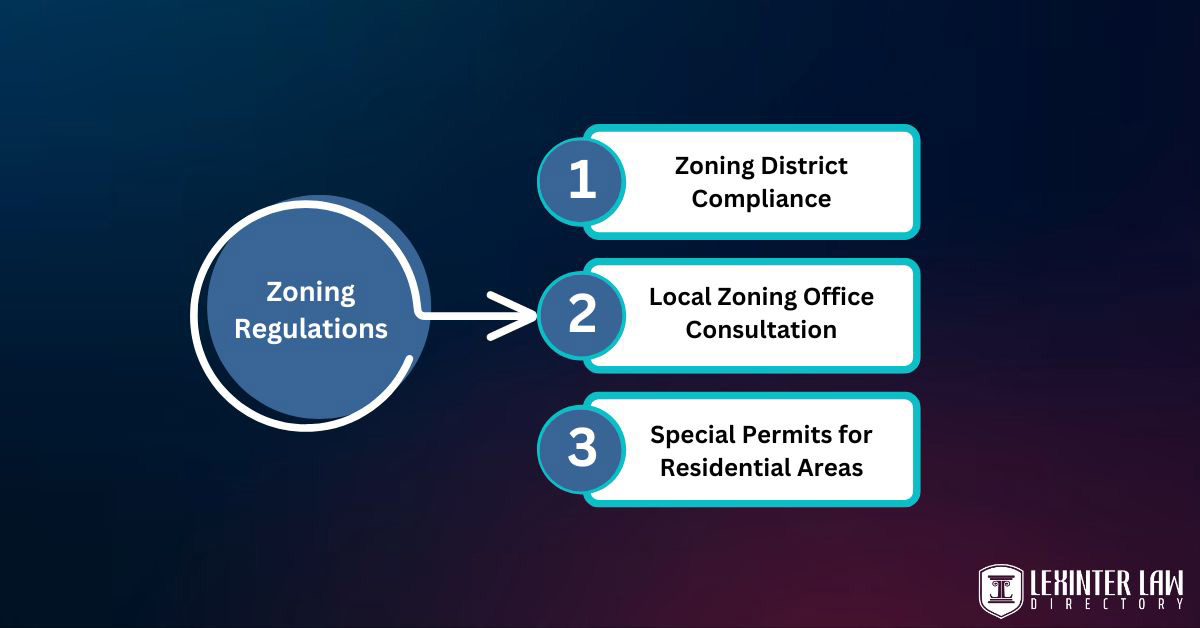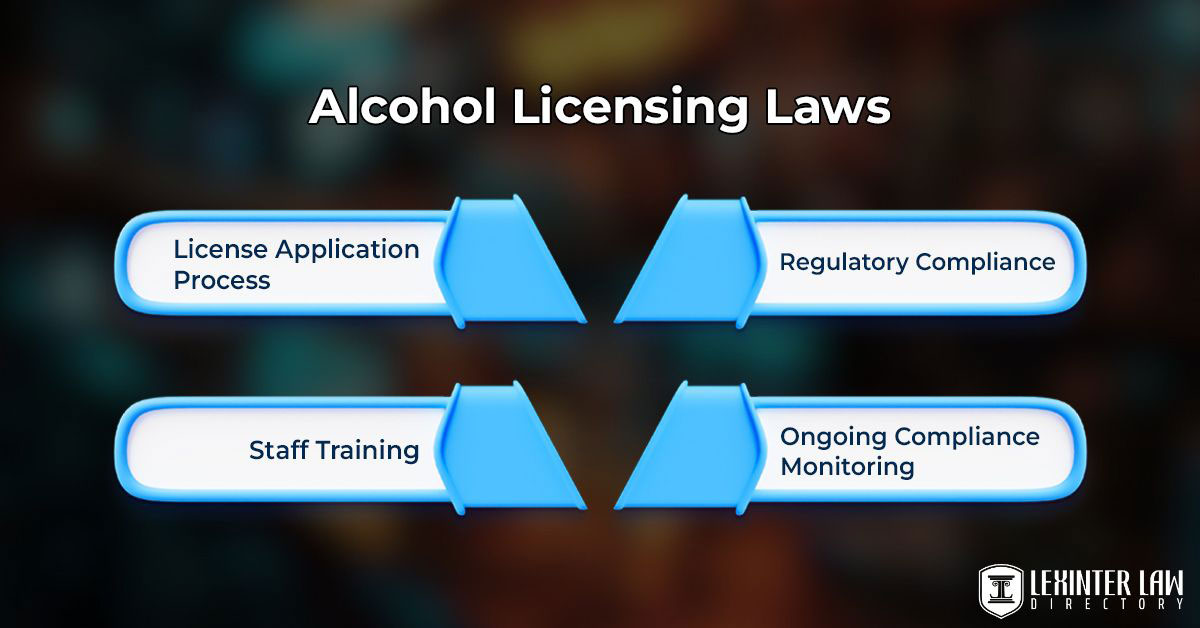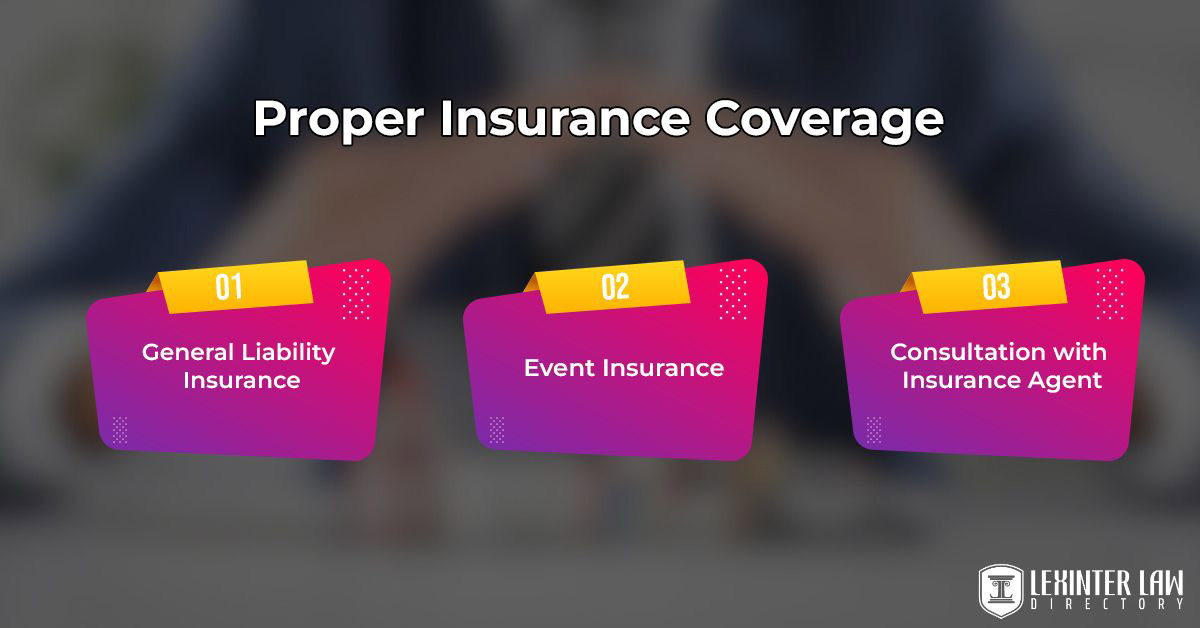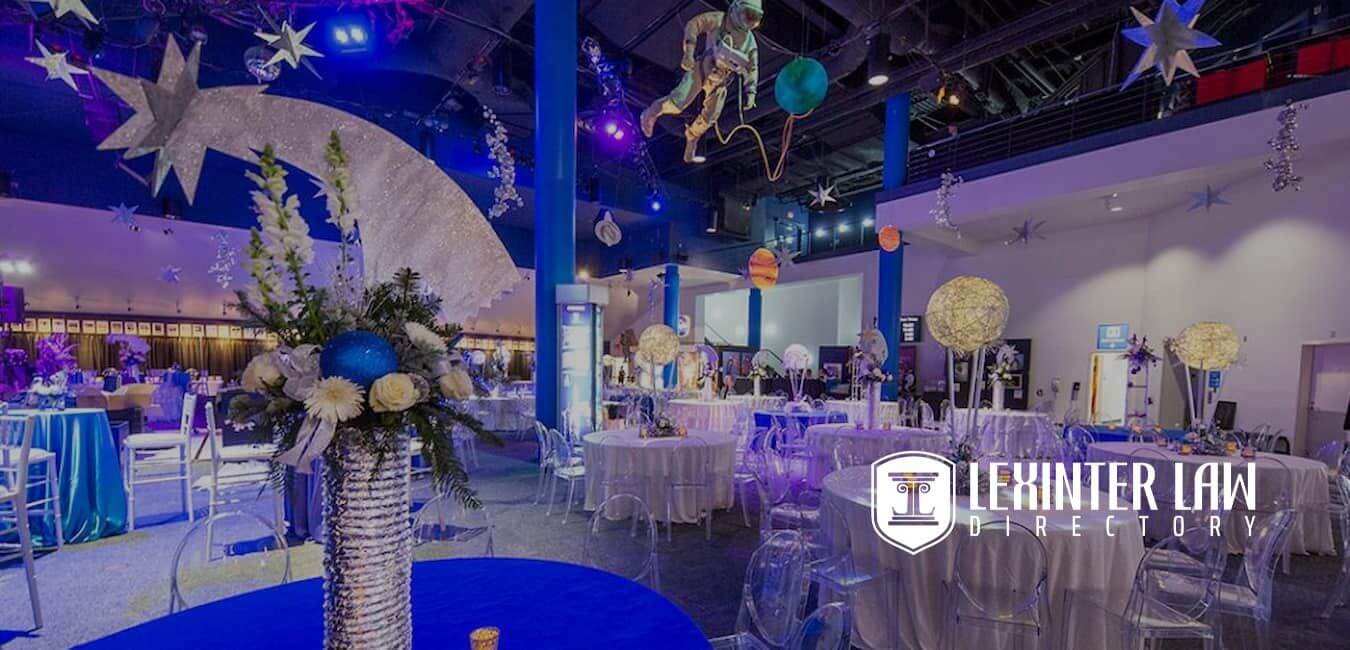Legal Requirements For Event Centers
Event centers are a booming business and for a good reason. They provide a central location for weddings, corporate events, parties, and more. Event centers are considered public places, which means they are subject to all the same regulations as other businesses, such as restaurants and hotels. However, there are a few legal requirements for event centers that apply specifically. Here is a breakdown of the most important ones.
Table of Contents
- Zoning Regulations
- Business Licenses
- Building Permits
- Fire Code Capacity
- Alcohol Licensing Laws
- Americans With Disabilities Act (ADA) Compliance
- Proper Insurance Coverage
- Event Venue Permits
- Health And Safety Compliance
- Environmental Regulations
- Intellectual Property Considerations
- Data Protection Laws
- Parking And Traffic Management
- FAQs
- Conclusion
Zoning Regulations

The first thing you’ll need to do is make sure your event center is in a zoning district that allows for commercial businesses. You can check with your local zoning office to see what the requirements are in your area. If your event center is in a residential area, you may need to get a special permit from the zoning board.
Business Licenses
Every business is required to have a business license, and event centers are no exception. Business licenses are typically obtained through your city or county clerk’s office. The process for obtaining a business license varies from place to place, so it’s important to check with your local clerk’s office to find out what steps you need to take. Some cities and counties require businesses to undergo a background check before a license will be issued, so be prepared to provide any pertinent information that may be required. Before getting the required licenses, take a look at an event center business plan pdf to make sure that you’re on the right track for your business.
Building Permits
Next, you’ll need to obtain the proper building permits for your event center. The type of permit you’ll need will depend on the scope of work being done. For example, if you’re just renovating an existing space, you may only need a permit for electrical and/or plumbing work. But if you’re starting from scratch, you’ll need permits for the entire project.
Fire Code Capacity
One of the most important things you’ll need to consider when opening an event center is fire code capacity. This will determine how many people can safely occupy your space at any given time. To find out what your fire code capacity is, you’ll need to consult with your local fire department. They will have a record of the maximum occupancy limit for your space, based on its size and layout. Once you have this number, be sure to post it in a visible location near all exits—that way, everyone in your space will know how many people they need to evacuate in case of an emergency.
It’s also important to note that your fire code capacity may be different from your occupancy limit, which is set by your city or state. Your occupancy limit may be lower than your fire code capacity, so be sure to check with your local authorities to see what applies to your space. If you’re ever unsure about how many people can safely occupy your space, it’s always better to err on the side of caution and limit occupancy accordingly.
Alcohol Licensing Laws

If you plan on serving alcohol at your event center, you’ll need to obtain the proper license from your state’s Alcohol Beverage Control Board. Depending on the type of license you apply for, there may be additional requirements, such as proof of age for all employees who will be handling or serving alcohol.
Americans With Disabilities Act (ADA) Compliance
If you’re planning on hosting events open to the general public, then you’ll also need to make sure your space is ADA-compliant. When it comes to event centers, the ADA requires that all public areas be accessible to individuals with disabilities. This means ensuring that there are no architectural barriers preventing wheelchair users from entering the premises and that there are adequate restrooms and other facilities for individuals with different types of disabilities. If you’re not sure if your event center complies with ADA, it’s a good idea to consult with an attorney who specializes in this area of law.
Proper Insurance Coverage

Last but not least, you’ll need to make sure your event center has proper insurance coverage. This includes general liability insurance, which protects your business against claims of bodily injury or property damage arising from your operations. You’ll also need to purchase event insurance, which covers things like cancellations, inclement weather, and other unforeseen circumstances that could occur during an event. Be sure to speak with an experienced insurance agent who can help you determine the best coverage for your specific needs.
Event Venue Permits
Opening an event center can be a rewarding experience, but it’s important to make sure you’re aware of the legal requirements. Taking the time to understand these legalities before opening for business will help guarantee that your event center is up-to-code and will save you money in the long run by avoiding costly fines or closures. Follow this guide to ensure that your event center is up and running smoothly from day one.
Health And Safety Compliance
Health and safety compliance means following rules to keep people safe in event centers. These rules ensure the building is safe to use, with clear emergency exits, working fire alarms, and proper ventilation. Event centers must check their equipment. For example, lights and sound systems, to make sure they don’t cause accidents. They also need to have clean spaces and proper food handling if serving meals. Staff must be trained to handle emergencies, like helping someone who is hurt. These steps protect everyone, making sure events are safe and enjoyable for all.
Environmental Regulations
Environmental regulations for event centers are rules. They protect nature and keep the environment healthy. Event centers must manage waste. They must recycle paper, plastic, and glass and avoid littering. They must use energy wisely. Turn off lights when not needed. Use energy-saving equipment. When they serve food, they must avoid wasting it and use eco-friendly packaging. Event centers also must make sure they don’t harm nearby plants, animals, or water sources. These rules help event centers stay clean and green. They make them safe for people and the planet.
Intellectual Property Considerations
Intellectual property rules protect creative ideas like music, logos, or artwork. Event centers must follow these rules. They avoid using someone else’s work without permission. For example, when they play music, they will need a special license to use it legally. When they use pictures or videos, they must get permission from the creators. Event centers also need to protect their own logos and designs so others don’t copy them. By respecting intellectual property, event centers help artists and creators. They also avoid legal problems. It seems like being fair and giving credit where it’s due!
Data Protection Laws
Data protection laws are rules that keep people’s personal information safe. Event centers often collect details when selling tickets or booking events. This includes names, phone numbers, and payment info. These laws need event centers to store this information securely. It must not be stolen or shared without permission. For example, they must use strong passwords and protect their computers from hackers. They also need to tell people how their information will be used and get permission if needed. Following these rules helps keep everyone’s personal details private and safe.
Parking And Traffic Management
Parking and traffic management rules help event centers keep cars and people safe. Event centers must have enough, safe parking for visitors. The lot must have clear signs and good lighting. They also need to plan how cars will enter and leave to avoid traffic jams. Special spaces must be available for people with disabilities, following legal rules. Event centers must work with local authorities to manage traffic and ensure safety. By following these rules, event centers make it easier for everyone to get in and out safely and quickly.
FAQs
1. What Permits Are Needed For Event Centers?
Event centers need permits like building permits for safety, health permits to serve food, and fire safety permits for emergencies. They will also need noise permits for loud events and occupancy permits to control the crowd size. These permits ensure events are safe, legal, and run smoothly.
2. How To Ensure ADA Compliance In Venues?
To ensure ADA compliance in venues, have wheelchair ramps, accessible seating, and clear paths. Use braille signs, assistive listening devices, and accessible restrooms. Train staff to assist guests with disabilities. These steps follow the law and help create a space where everyone feels welcome.
3. What Are Zoning Laws For Event Centers?
Zoning laws for event centers decide where they can be built and what activities they can have. These rules make sure the center fits the neighborhood, controls noise, and manages parking. Event centers must follow these rules to operate legally and avoid causing problems in the area.
Conclusion
Legal requirements for event centers are vital. They keep everyone safe, happy, and protected. Following rules, like getting the right permits, helps events run smoothly. These rules include health and safety standards, and environmental and accessibility laws. These rules also protect the community by managing noise, traffic, and waste.
By following these requirements, event centers can create safe spaces. People can then gather, celebrate, and enjoy themselves. It also shows that the event center cares about the law and the people it serves. A well-prepared and legally compliant event center makes every event better for everyone.

